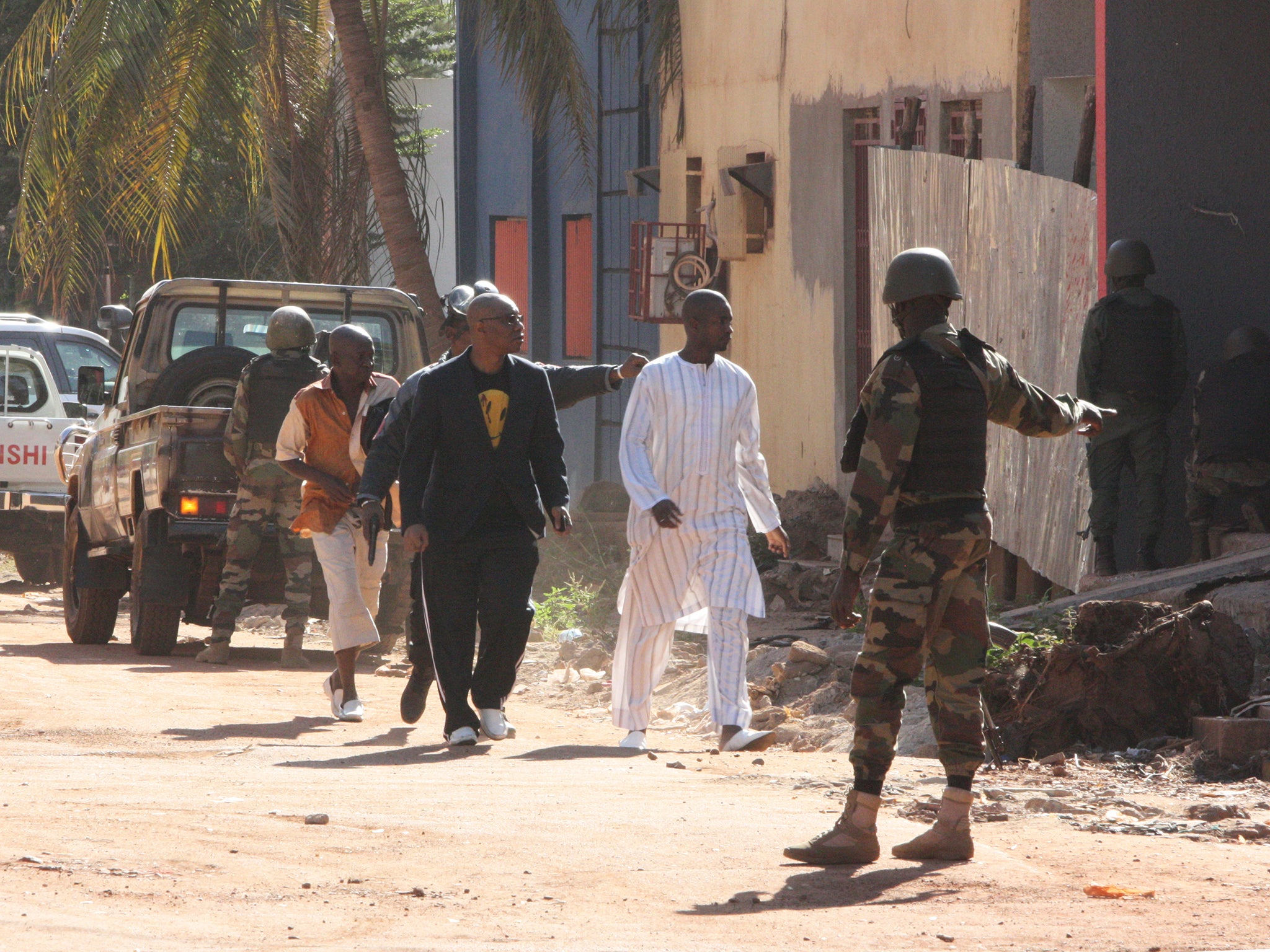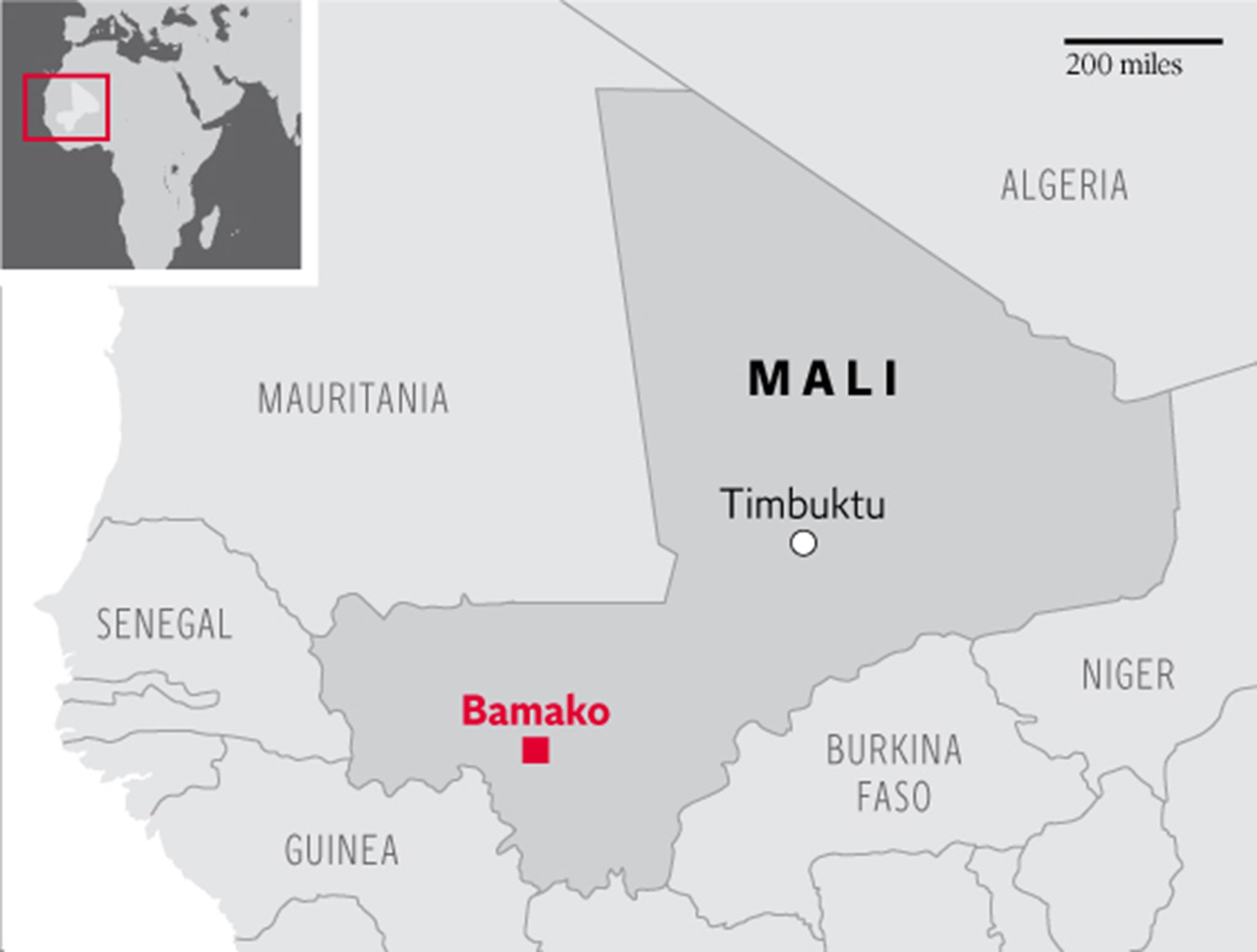Mali hotel attack: Gunmen take 170 hostages in Bamako amid reports of 'five dead' in shootout
Early reports claimed as many as five people were killed

Almost 200 people are being held hostage in a hotel in Mali's capital after armed gunmen stormed a Raddison Blu hotel in Mali.
The unidentified men attacked the hotel in the country's capital of Bamako at around 8am on Friday, with some reports claiming grenades as well as automatic weapons were used in the initial assault.
"They have locked in about 140 guests and about 30 employees," a spokesperson for the hotel, owned by the Carlson Rezidor group, told NBC. "So the hotel is locked down and there is no possibility to go out or come in."
Local news reports claim the gunmen arrived at the hotel in a vehicle with a diplomatic pass. There have also been reports as many as five people were killed, while nearby residents have reported hearing on-going gunfire and explosions.
For all the latest information, check out The Independent's liveblog.
Malian army commander Modibo Nama Traore told the Associated Press as many as 10 gunmen were invoved in the assault.

Timeline of insurgency in Mali
October 2011
People from the Tuareg, or Berber, ethnic minority group form the Azawad National Liberation Movement (MNLA) and began an insurgency against the Malian government in the north.
Many Tuareg people had returned from fighting against Colonel Gaddafi in Libya - taking their weapons home with them.
Mali’s Tuareg people, who make up 10 per cent of the population, have complained they have marginalised by the southern government.
March 2012
The army stage a successful coup against the government after months of frustration over its handling of the rebellion.
President Amadou Toumani Touré is later forced into exile during negotiations to restore democracy.
Meanwhile, Tuareg and al-Qaeda linked forces seize control of the north of the country.
June 2012
Islamist groups capture Timbuktu, Kidal and Gao from Tuareg rebels in the centre of the country and begin to destroy its ancient manuscripts and Muslim shrines.
January 2013
The French military begins operations against Islamist militants in the north after plea for help from Malian government.
Islamist fighters encroach further south raising fears they will capture Bamako in the south.
June-July 2013
A peace deal is signed with Tuareg rebels and 120,000 UN troops take over responsibility for pushing out the Islamists after seizing back northern towns.
December 2013
The peace deal with Tuareg rebels breaks down.
July-December 2014
France launches a new attack on the Sahel desert to route out Islamists and claims to have killed over 200 jihadists.
March 2015
A masked gunman kills five people in a machine-gun and grenade attack in Bamako.
November 2015
Masked gunmen take 170 hostage in the capital’s Radisson hotel.
Mr Traore also claimed the men shouted “Allah Akbar” before they fired on the guards and took hostages.
"Very early in the morning there was gunfire. Apparently it's an attempt to take hostages. The police are there and are sealing off the area," a security source told Reuters.
In a release, the US embassy said there was an "active shooter operation at the Radisson Hotel." It advised people to contact their families and monitor local media for updates.
The hotel, which has around 190 rooms, is well known in the city and is popular with both foreign tourists and companies. There are indications the hotel was "90 per cent" full when the attack commenced, however, The Independent has been unable to verify these claims.
It comes following another hostage situation in August in the central Malian town of Sevare. Suspected Islamic gunmen killed 13 people, including five United Nations workers, during a siege.
A former French colony, UN peacekeepers have controlled security in Mali since 2013.
Islamic extremists, who have been linked to al-Qeada, made gains in the country’s north from 2012. After defeating government forces, the militants imposed harsh Islamic law across the desert region until an ostensive defeat in 2013.
Despite this, in a report in April of this year Human Rights Watch characterised the region as “devoid of state authority in which Tuareg separatists, Islamist armed groups, pro-government militias and bandits have committed abuses with impunity”.
Join our commenting forum
Join thought-provoking conversations, follow other Independent readers and see their replies
Comments
Bookmark popover
Removed from bookmarks